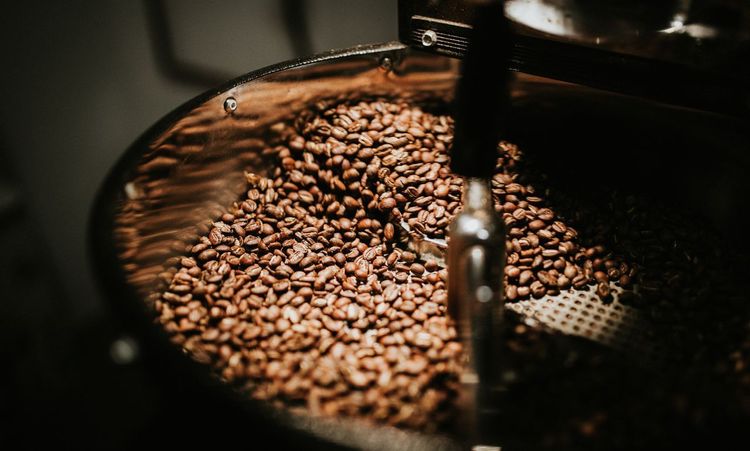Are you tired of starting your morning with coffee with questionable chemicals and bitter aftertastes? I know I was. After years of grabbing whatever coffee was on sale at the grocery store, I decided to make the switch to organic coffee—and, wow, what a difference it made in both taste and how I felt afterward!
In this comprehensive guide, I'll walk you through everything you need to know about finding the best organic coffee for your morning routine
What to Consider When Buying Organic Coffee

Before diving into specific brands, let's talk about what actually matters when choosing an organic coffee.
Certifications
When shopping for organic coffee, look for these important certifications:
USDA Organic: This certification ensures your coffee was grown without synthetic pesticides, herbicides, or fertilizers. Coffee with this label must meet strict guidelines about how the beans are grown and processed.
Fair Trade: While not directly related to organic status, Fair Trade certification ensures that coffee farmers receive fair compensation for their work. This often goes hand in hand with organic practices since sustainable farming requires proper investment.
Rainforest Alliance: This certification focuses on environmental conservation and protecting the ecosystems where coffee grows.
I've found that coffees with multiple certifications deliver the best quality, sustainability, and ethical production.
Roast Levels and Flavor Profiles
Organic coffee comes in various roast levels, each offering distinct flavor profiles:
Light Roast: Higher acidity, brighter flavors, and more caffeine. Often features citrus notes and floral undertones.
Medium Roast has a balanced flavor with moderate acidity. It usually has a smooth mouthfeel with notes of chocolate, nuts, or caramel.
Dark Roast has a bold, rich flavor with less acidity. It often presents deep chocolate or earthy flavors with a stronger body.
The best roast level depends entirely on your personal preference. After testing dozens of organic coffees, I've found that medium roasts highlight the unique characteristics of organic beans while providing a smooth, approachable cup.
Bean Origin and Processing
Where your coffee comes from significantly impacts its flavor. Single-origin organic coffees offer distinct regional characteristics, while blends provide consistent, balanced flavors.
Common organic coffee origins include:
- Ethiopia (fruity, wine-like qualities)
- Colombia (balanced, caramel sweetness)
- Peru (nutty, chocolate notes)
- Mexico (mild body with subtle spice notes)
The processing method also affects flavor. Look for information about whether your coffee is wet-processed (cleaner, brighter flavor) or dry-processed (more complex, fruit-forward).
Fabula Coffee
Fabula Coffee has quickly risen to become one of the most trusted names in organic coffee, and for good reason. This brand takes exceptional care at every step of the coffee production process.
What sets Fabula apart is its rigorous testing. Each batch undergoes testing for over 400 toxins, including pesticides, molds, and heavy metals. This attention to detail ensures you're getting genuinely clean coffee.
Their beans are single-origin, shade-grown, and USDA Organic-certified. The company also prioritizes fair trade practices, ensuring coffee farmers receive proper compensation for their hard work.
Flavor-wise, Fabula offers a smooth, rich taste with minimal acidity. Their medium roast provides notes of chocolate and nuts with a clean finish—there is no bitter aftertaste that plagues many conventional coffees.
One personal note: When I switched to Fabula's medium roast as my daily coffee, I noticed that my usual mid-afternoon energy crash disappeared. The clean, organic beans provided a steadier energy release without the jitters or subsequent crash I experienced with conventional brands.
Lifeboost Coffee
Lifeboost Coffee specializes in low-acid, USDA Organic, non-GMO coffee that's particularly gentle on sensitive stomachs. Their beans are shade-grown at high elevations in Nicaragua, contributing to their exceptional flavor profile.
What makes Lifeboost stand out is its commitment to specialty-grade beans. Only the top 1% of coffee beans worldwide qualify as "specialty grade," meeting strict standards for quality, size, and lack of defects.
The company also focuses on sustainable farming practices and pays farmers fair wages. Their coffee is certified bird-friendly, meaning it's grown under a canopy of native trees that provide a habitat for migratory birds.
Lifeboost offers various roast options, from light to dark, but their medium roast hits the sweet spot with notes of caramel, chocolate, and a hint of fruit, all without any bitter finish.
Purity Coffee
For health-conscious coffee drinkers, Purity Coffee takes organic standards to another level. Their entire production process focuses on maximizing the health benefits of coffee while eliminating potential toxins.
Purity selects beans based on their antioxidant content and tests each batch for mold, mycotoxins, and pesticides. They even optimize their roasting process to preserve beneficial compounds like chlorogenic acids while minimizing harmful acrylamide formation.
Their beans are USDA Organic certified, specialty grade, and sustainably sourced. The company focuses on creating the "healthiest coffee possible" rather than just meeting minimum organic standards.
Flavor-wise, Purity offers a clean, smooth taste with medium body and balanced acidity.
Why is it Important to Choose an Organic Coffee Brand?
Switching to organic coffee isn't just about following a trend—it offers tangible benefits for your health and the environment.
Conventional coffee is one of the most heavily sprayed crops globally, with farmers using synthetic pesticides, herbicides, and fertilizers to maximize yields. These chemicals don't just harm the environment; residues can remain in your morning cup.
Organic coffee farms use natural methods to manage pests and enhance soil fertility. This approach promotes biodiversity, protects local water sources, and creates healthier ecosystems.
From a health perspective, organic coffee contains fewer potentially harmful compounds. Many coffee drinkers report fewer digestive issues, less jitteriness, and no afternoon crash when switching to organic brands.
I noticed this difference myself about six months ago. After experiencing headaches and stomach discomfort after my morning coffee, I switched to organic. Within days, these symptoms disappeared, and I enjoyed coffee again rather than just depending on it.
Which Coffee Beans Are the Best?

When it comes to the best organic coffee beans, Arabica varieties generally offer superior flavor compared to Robusta. Look for beans labeled "100% Arabica" for the most pleasant taste experience.
High-altitude-grown beans (often labeled as "high-grown" or "strictly hard bean") develop more slowly, resulting in denser beans with more complex flavors.
Single-origin beans from regions like Ethiopia, Colombia, and Guatemala often provide distinctive flavor profiles that highlight the unique characteristics of their growing areas.
For the absolute best quality, look for the designation "specialty grade" alongside the organic certification.
What are the Tips for Making the Best Cup of Coffee at Home?
Even the finest organic coffee beans can disappoint if brewed improperly. Here are essential tips for brewing the perfect cup:
- Use freshly roasted beans. Coffee's peak flavor occurs 4-14 days after roasting. Look for roast dates on the packaging.
- Grind just before brewing: Once ground, coffee begins losing flavor immediately. Invest in a quality burr grinder and grind beans just before brewing.
- Use filtered water: Coffee is 98% water, so water quality significantly impacts taste. Filtered water free from chlorine and other chemicals produces a cleaner flavor.
- Mind your measurements: The standard ratio is 1:16 (one part coffee to 16 parts water), but adjust to your preference.
- Control water temperature: For most brewing methods, water should be between 195-205°F (90-96°C)—just below boiling.
- Pay attention to brewing time: Different methods require different contact times between water and coffee. For pour-over, aim for 2-4 minutes; for French press, 4 minutes is ideal.
- Clean your equipment regularly: Coffee oils can build up and impart rancid flavors. Clean your brewing equipment thoroughly after each use.
What Coffee Has the Least Amount of Chemicals?
If minimizing chemical exposure is your priority, look for coffees that are:
- USDA Organic Certified: This ensures beans are grown without synthetic pesticides, herbicides, or fertilizers.
- Third-Party Tested: Brands like Fabula, Purity, and Lifeboost conduct additional testing for residual chemicals, molds, and mycotoxins.
- Shade-Grown: Coffee grown under a canopy of trees typically requires fewer pesticides since the diverse ecosystem naturally controls pests.
- Processed Naturally: Look for naturally processed or water-processed coffees, especially for decaffeinated options. Avoid coffees decaffeinated using methylene chloride or ethyl acetate.
What is the Best Mold-Free Organic Coffee?
Coffee can sometimes contain molds and mycotoxins, particularly if the beans aren't properly processed or stored. The best mold-free organic coffees include:
Purity Coffee: Their entire production process focuses on eliminating mold and mycotoxins with rigorous testing protocols.
Fabula Coffee: Tests every batch for over 400 toxins, including various mold species and mycotoxins.
Lifeboost Coffee: Their high-altitude-grown beans are less susceptible to mold, and they conduct third-party testing to verify quality.
These brands prioritize proper processing, drying, and storage to prevent mold growth. They also test final products to ensure they meet strict quality standards.
What is the Highest Quality Coffee?

The highest quality coffee combines several factors:
- Specialty Grade Beans: These represent the top 1% of coffee globally, with minimal defects and distinctive characteristics.
- Organic and Sustainable Growing Practices: Quality coffee comes from healthy plants grown in nutrient-rich soil without harmful chemicals.
- Proper Processing and Roasting: Careful attention during processing and precision roasting develops complex flavors while avoiding defects.
- Freshness: High-quality coffee is freshly roasted and properly packaged to preserve flavor.
Based on these criteria, brands like Purity Coffee, Fabula Coffee, and Lifeboost consistently produce some of the highest quality organic coffee available.
Conclusion
The best organic coffee combines ethical sourcing, sustainable growing practices, and exceptional flavor. While personal preference plays a significant role in determining which coffee is "best" for you, brands like Fabula, Lifeboost, and Purity consistently deliver outstanding organic coffee experiences.
Switching to organic coffee provides a cleaner, more enjoyable cup and supports sustainable farming practices and fair compensation for coffee farmers. Your daily cup becomes an opportunity to support your health and the health of our planet.
Whether you prioritize flavor complexity, health benefits, or environmental impact, there's an organic coffee that perfectly matches your preferences. Take time to explore different origins, roast levels, and brewing methods to discover your perfect cup.


